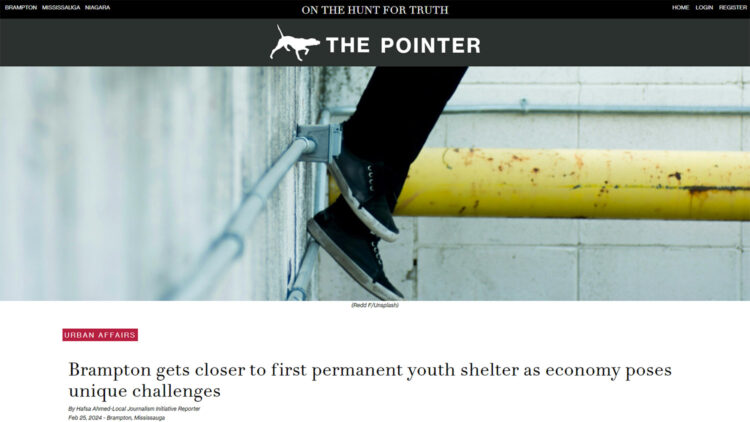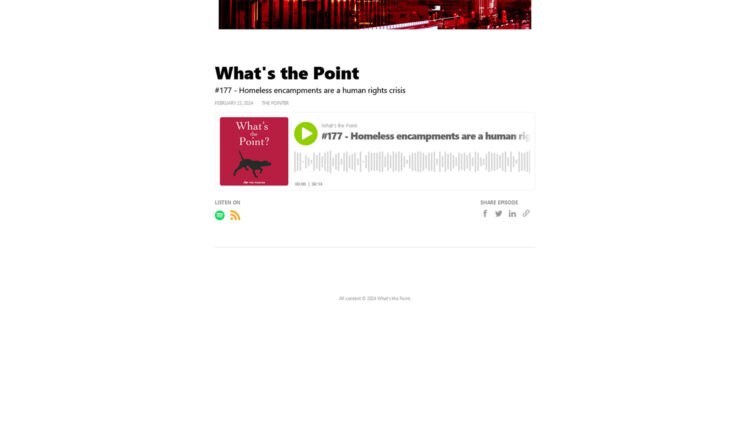Community Partners are the foundation of the Peel Alliance to End Homelessness (PAEH).
They are groups, businesses or organizations that, make up the eco-system of PAEH’s collective impact initiative to end homelessness in Peel. In addition, the PAEH Senior Leadership Table are rooted in Community Partners. CPs are thus central to implementing PAEH strategies.
The PAEH’s integrity and authority is grounded in these partners, and the PAEH Senior Leadership Table is ultimately accountable to the community. Community Partners have access to a variety of opportunities to learn about and engage in the PAEH goal to end chronic and episodic homelessness in Peel Region and in its strategies and activities.
Index
- Purpose of the Agreement
- PAEH Mission
- Our Values
- Decision-Making Structure
- Standing Sub-Committee(s) Structure
- Standing Sub-Committee(s)
- Conflict of Interest
- Conflict Resolution
- Accountability
- Membership
- Funding / Financial Accountability
- Risk Management Strategies
- Addition of New Participating Organizations
- Withdrawal of Participating Organizations
- Terms of Engagement
-
Purpose of the Agreement
This agreement describes the roles, responsibilities, and operating procedures for the Peel Alliance to End Homelessness (hereafter referred to as the PAEH, the Alliance) as agreed upon by the membership. This Collaborative Agreement will guide the work of the PAEH.
-
PAEH Mission
The PAEH will work collaboratively to improve the coordination of the homelessness system of care in Peel Region by implementing a care approach particularly for and with those experiencing chronic or episodic homelessness.
The Canadian Alliance to End Homelessness (CAEH) leads a national movement of individuals, organizations and communities working together to end homelessness in Canada. PAEH is a proud member of this movement, and aligns our local aims with those of CAEH at the national level.
-
Our Values
- Collaboration – Promote collective impact and social change.
- Results-Oriented – Work together to achieve identified goals.
- Transparency – Essential to the ongoing work as a collaborative.
- Confidentiality – Absolute necessity to build trust and confidence.
- Accountability – Hold each other accountable for moving the work forward.
- Accessibility – All partners will strive to increase access for clients (ease of navigation, warm referrals).
- Innovation – Explore and be open to working in new ways to serve the homeless community better Equity – triage housing supports to ensure that those with the highest needs receive support, and that supports are holistic and individualized to meet each persons’ unique needs. Ensure the individual has all that’s needed to be successful and remain permanently housed.
-
Decision-Making Structure
The intention of the group is to work toward consensus decision making; whenever consensus does not prevail a motion will be placed for a vote.
A simple majority of votes (50% + 1) by core membership will determine the collaborative’s decision. Each core member organization of the PAEH will be allotted one vote. In the case where there is more than one person representing the organization, only the ‘designated member’ from that organization will be able to vote. If core members are not able to be present in person for the vote, they may participate through proxy by means of email or fax.
All funder partners will actively participate at the table as ex-officio and thus will not have a vote.
If there are conscious objections or concerns regarding any decision, members will have the option of having their objections and commentary recorded in the meeting minutes.
All significant decisions regarding the collaborative will require agreement by all core members of PAEH; i.e. infrastructure governance procedures, committee formation and dissolution, membership, work plans, funding opportunities, communication/media.
-
Standing Sub-Committee(s) Structure
Standing committees and ad-hoc committees will be developed to move the work of PAEH forward as necessary.
Each committee will work in line with the priorities and strategic directions set by the core membership and are accountable to PAEH.
Each committee will designate a chairperson to support the work. The Chair is responsible for reporting the committee’s work and findings back to the core membership.
Ad Hoc committees maybe created for short periods of time to work on a specific issue and address opportunities as they arise.
All committees will follow the decision-making process of the PAEH. A consensus decision making process will prevail. Committee Chairs will bring all decisions and findings back to the Core membership of the PAEH for final approval to ensure decisions are aligned with PAEH workplan and future strategy (since committee members may not have the broader context piece).
Depending on the work of the sub-committee, PAEH will authorize the committee to make operational decisions that will move the work forward.
Sub/Ad Hoc committees will comprise of the people best suited to address the issue(s)/need. However, the Chair of the committee must be a core member.
-
Standing Sub-Committee(s)
PAEH will have a standing sub-committee dedicated to the implementation of a coordinated access system, including the governing the development and use of a by-name list through the Built For Zero learning journey. The PAEH coordinator will assume organizational duties and overall accountability for the advancement of this committee’s work plan.
PAEH will have a standing communications sub-committee that will govern external communication of the alliance’s agenda and works, through such avenues as the website, social media platforms, and monthly E-newsletter.
-
Conflict of Interest
Any member who is directly or indirectly interested in an existing or proposed contract or has a conflict of interest shall declare his/her interest fully at the monthly general/sub-committee/ad hoc meeting and shall refrain from discussion and voting in respect of the matter on which he/she has declared a conflict.
The Chair shall ask at the beginning of the meeting and any declarations in respect of any of the agenda items will be recorded in the minutes.
Members have a duty to exempt themselves from participating in any discussion and voting on matters where they have, or may be perceived as having, a conflict of interest.
-
Conflict Resolution
It is recognized that power imbalances exist not only between individuals but also between organizations. These structural barriers and systemic power imbalances will be identified and addressed when they occur to ensure a fair process, just resolution and a healthy collaborative. It is also recognized that there may be situations where direct conflict between/among committee members may arise. In both of these circumstances PAEH will endeavour to facilitate a mutually beneficial result.
-
Accountability
It is the responsibility of each core member to keep their organization informed of PAEH’s activities. The membership of the PAEH will meet annually to jointly evaluate the collaborative, including its progress toward meeting its goals.
PAEH members are committed to open communication with each other with regard to strengths and limitations in the collaboration. The PAEH membership will work together to address weaknesses and to improve outcomes.
All core member organizations must be a signatory of this Collaborative Agreement to possess a vote.
-
Membership
-
Core Member(s)
Core membership is organizational and is comprised of representatives who have as part of their portfolio housing and homelessness initiative(s).
Core members are signatories to the PAEH Collaborative Agreement which entitles them to one vote per organization.
Core members are the decision-making body of PAEH who set direction and determine how to leverage the pooled resources of the PAEH.
Core members play a leadership role on Sub/Ad Hoc committees of PAEH.
Core members are committed to the vision, values and mission of the PAEH.
Core members must deliver programs and services in the Region of Peel or be geographically located in the Region of Peel.
-
Associate Member(s)
Associate membership could be individual or organizational and is comprised of representatives who have as part of their portfolio or areas of interest housing and homelessness initiative(s).
Associate members are committed to the vision, values and mission of the PAEH.
Associate members may participate on Sub-committees, Ad Hoc committees as members only.
Associate members are not eligible to vote nor hold a leadership position on any of the Sub/Ad Hoc committees.
Associate members may/may not deliver programs and services in the Region of Peel nor be geographically located in the Region of Peel.
-
-
Funding / Financial Accountability
PAEH members agree that the Chair or a designated core member organization will serve as lead agency for the purposes of seeking, receiving, and managing funding for PAEH activities.
-
Risk Management Strategies
PAEH Members must understand the principal risks of decisions made at general meetings. PAEH will endeavour to understand the context, their role and space as a Collaborative and the role and mandate of member organizations/stakeholder partners in the broader community and ensure that these aspects are weighed to achieve a proper balance between risks incurred and potential returns.
PAEH will ensure that mitigation strategies are in place to effectively anticipate, monitor and manage any identified risks.
-
Addition of New Participating Organizations
The PAEH membership may from time to time recommend the addition of other organizations or governmental bodies as Core or Associate members of the Collaborative. Upon the agreement of PAEH members, additional organizations or governmental bodies will be invited to participate in the Collaborative.
- New Core members will be required to sign the PAEH Collaborative Agreement.
- One representative per organization will sit on the SLT. Should the appointed representative not be available for scheduled meetings, then they can choose a secondary representative to attend on their behalf.
- Any requests for more than one organizational representative to sit at the SLT will be put to a vote by voting members of the SLT.
-
Withdrawal of Participating Organizations
Any participating Core or Associate member may at any time decide to withdraw its membership from the PAEH either verbally or in writing.
-
Terms of Engagement
Community Partners is the category of supporters of the PAEH collective impact initiative for organizations. In order to become and remain a Community Partner, organizations must sign a Partnership Agreement that lays out the following commitments and benefits:
-
Commitments
- To uphold the vision, mission and beliefs of the PAEH as laid out in the Community Partner Agreement.
- To participate in and uphold PAEH Community Agreement.
- To participate in PAEH meetings, events and campaign activities on a regular basis.
- To work respectfully and collaboratively with fellow PAEH partners.
- To commit to the principles of collective impact and work to align organizational strategic goals to the PAEH Community Partner Agreement.
-
Benefits
- Contributing to ending homelessness in Peel Region.
- Staff and designates from Community Partners can chair Working Groups.
- Enhanced profile with all orders of government and City-wide stakeholders with listing as a Community Partner on PAEH website and promotional material.
- Linking of websites with PAEH (if desired).
- Staff and designates from Community Partner access to exclusive speakers and other PAEH events.
- Staff and designates from Community Partner access to PAEH newsletters, reports, publications etc.
-






























